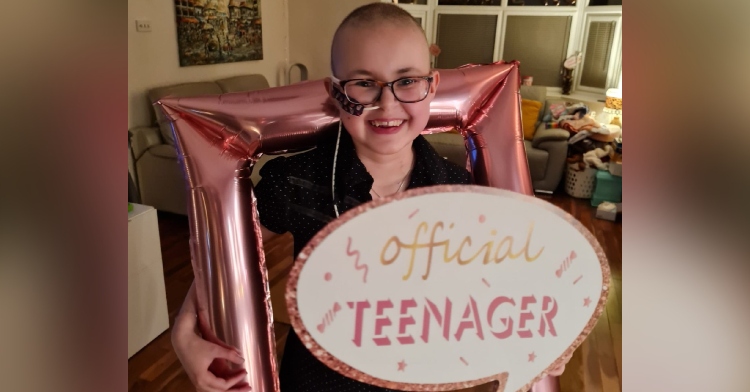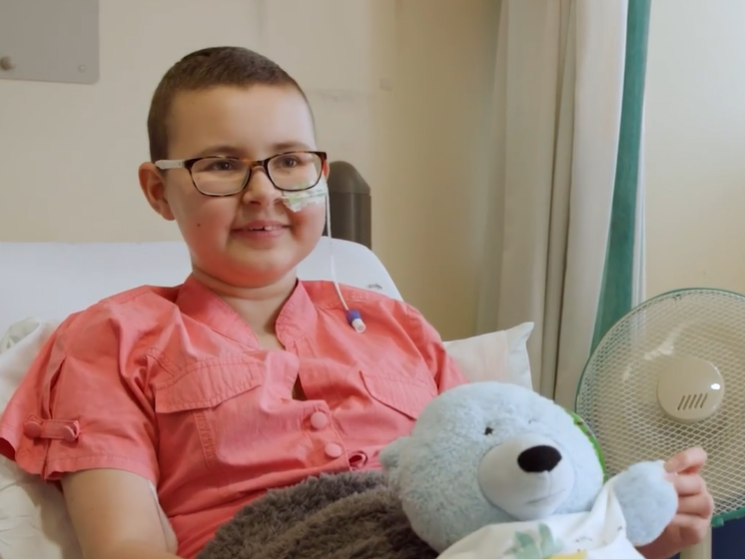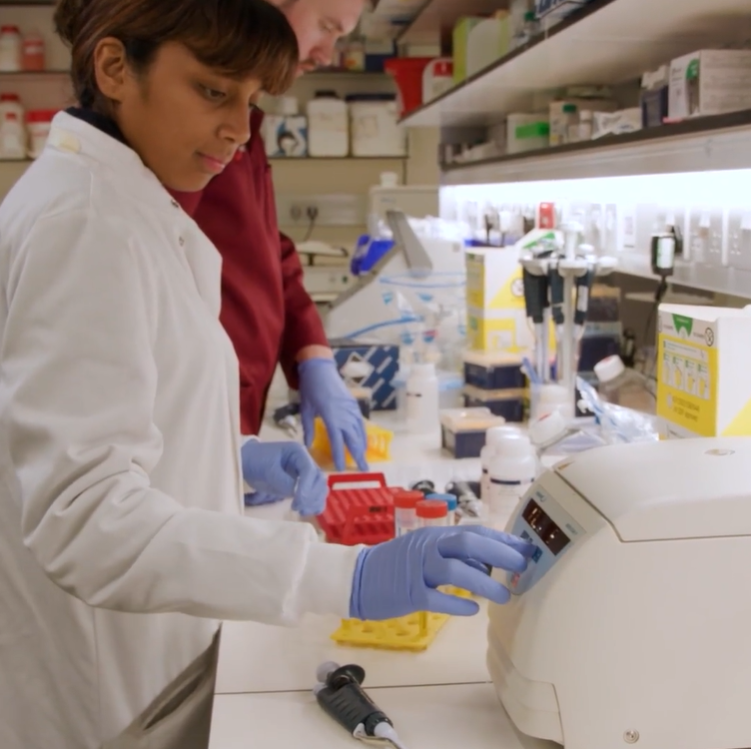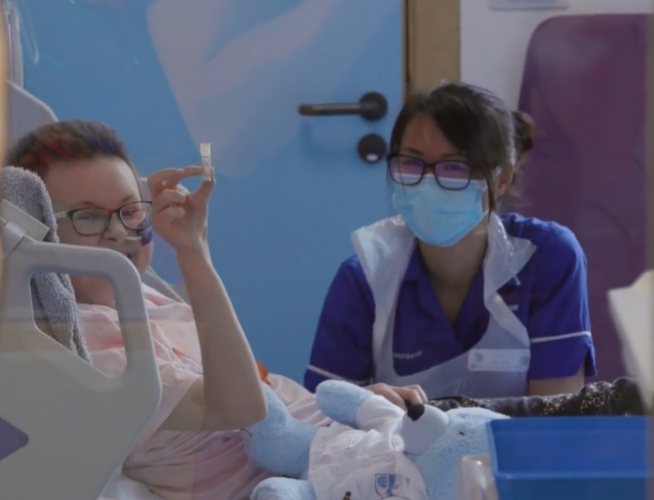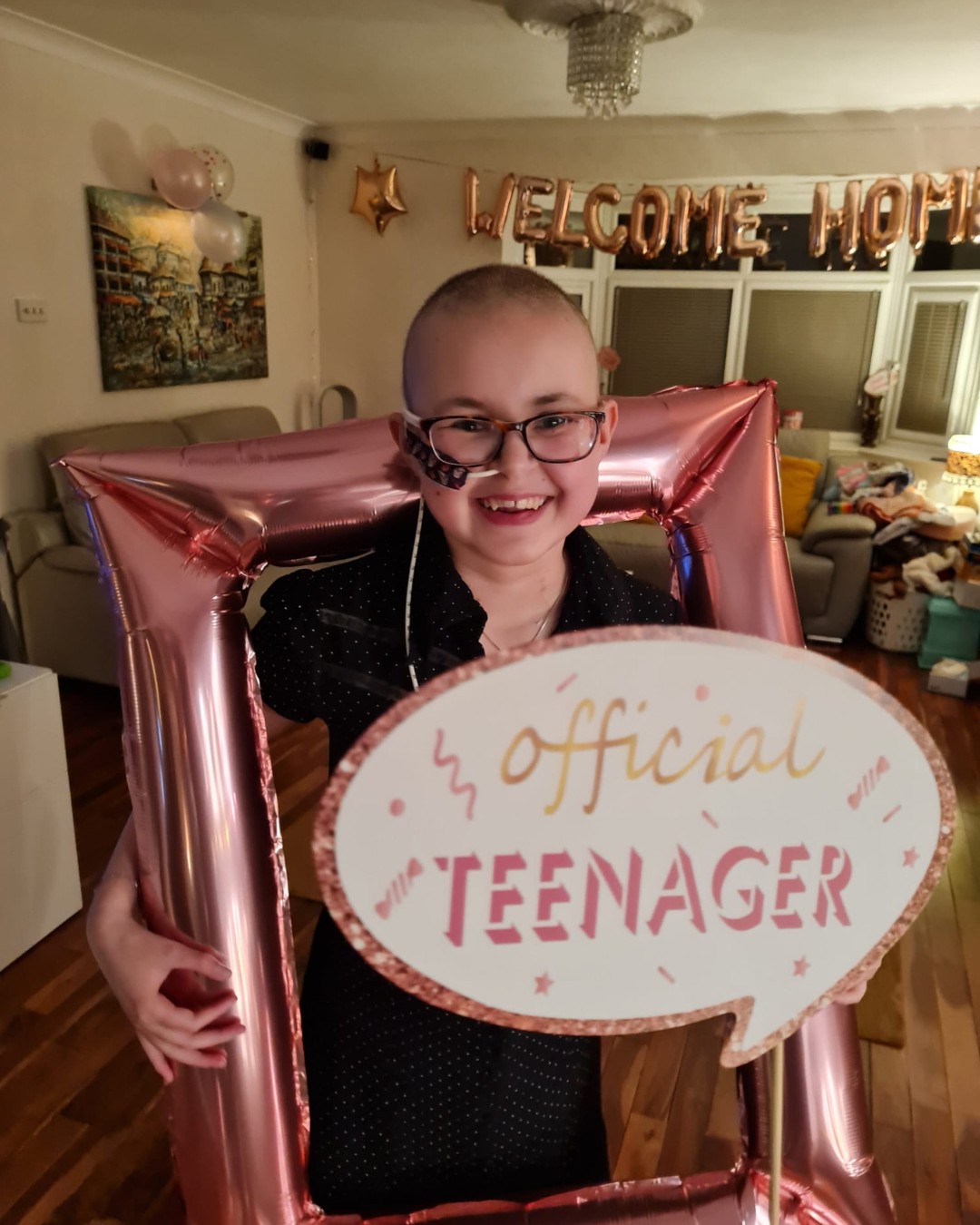With every major advance in medicine, someone has to be brave enough to go first.
Thirteen-year-old Alyssa of Leicester, England was diagnosed with T-cell acute lymphoblastic leukemia in May of 2021. While the chances of survival were in her favor initally, Alyssa’s cancer did not respond to treatment as well as doctors had hoped. After chemotherapy and a bone-marrow transplant failed, Alyssa and her family feared the worst.
Alyssa’s mother, Kiona, feared this Christmas might be the last one they could celebrate with their daughter.
“Eventually I would have passed away,” Alyssa told BBC News.
The only avenue left to explore was experimental medicine. When her medical team at Great Ormond Street Hospital approached Alyssa about “base editing,” a new system of biological engineering that edits genes to hopefully eliminate disease, the teenager was on board immediately.
“Alyssa is very mature and she has been part of the discussions from the very beginning,” said Dr. Robert Chiesa, Consultant in Bone Marrow Transplants at Great Ormond Street Hospital. “In fact, I remember our very first consultation when I explained the rationale for the study, and at the end of it I asked, her, ‘What do you think?’ And she told me, ‘I’m not ready to give up.'”
Alyssa agreed to become the first person in the world to undergo base editing, a treatment that was only discovered about six years ago.
T-cells are the body’s guardians, and their job is to find and destroy threats. Alyssa’s leukemia made her T-cells go wild and take over. Base editing enables scientists to locate a distinct part of the genetic code inside a T-cell and modify it so it behaves differently.
In Alyssa’s case, scientists used millions of healthy donor T-cells and modified them so they would not attack Alyssa’s body and could hide themselves so they wouldn’t be destroyed by chemotherapy drugs. The resulting T-cells now track down cancerous cells and kill them. Once the cancerous cells were annihilated, Alyssa received a second bone-marrow transplant to rebuild her immune system from scratch.
She had the treatment in May 2022. Six months later, doctors can’t find any traces of cancer!
Professor Waseem Qasim, from UCL and Great Ormond Street, calls this form of genetic manipulation a “very fast-moving area of science” with “enormous potential,” and not just in the fight against cancer. He also hopes base editing can potentially cure genetic conditions like sickle cell anemia, high cholesterol, and certain blood disorders.
Alyssa is the first of 10 people who will receive experimental base editing therapy during this clinical trial. She’s excited to be a part of such a groundbreaking technique, and more than ready to get back to living her life outside of the hospital.
“It’s crazy,” she said. “It’s just amazing I’ve been able to have this opportunity, I’m very thankful for it, and it’s going to help other children, as well, in the future.”
Is this the big break the world has been waiting for in cancer treatment? Only time will tell, but Alyssa’s recovery gives us so much hope for the future!
Don’t forget to share this hopeful new development with others.
Want to be happier in just 5 minutes a day? Sign up for Morning Smile and join over 455,000+ people who start each day with good news.



